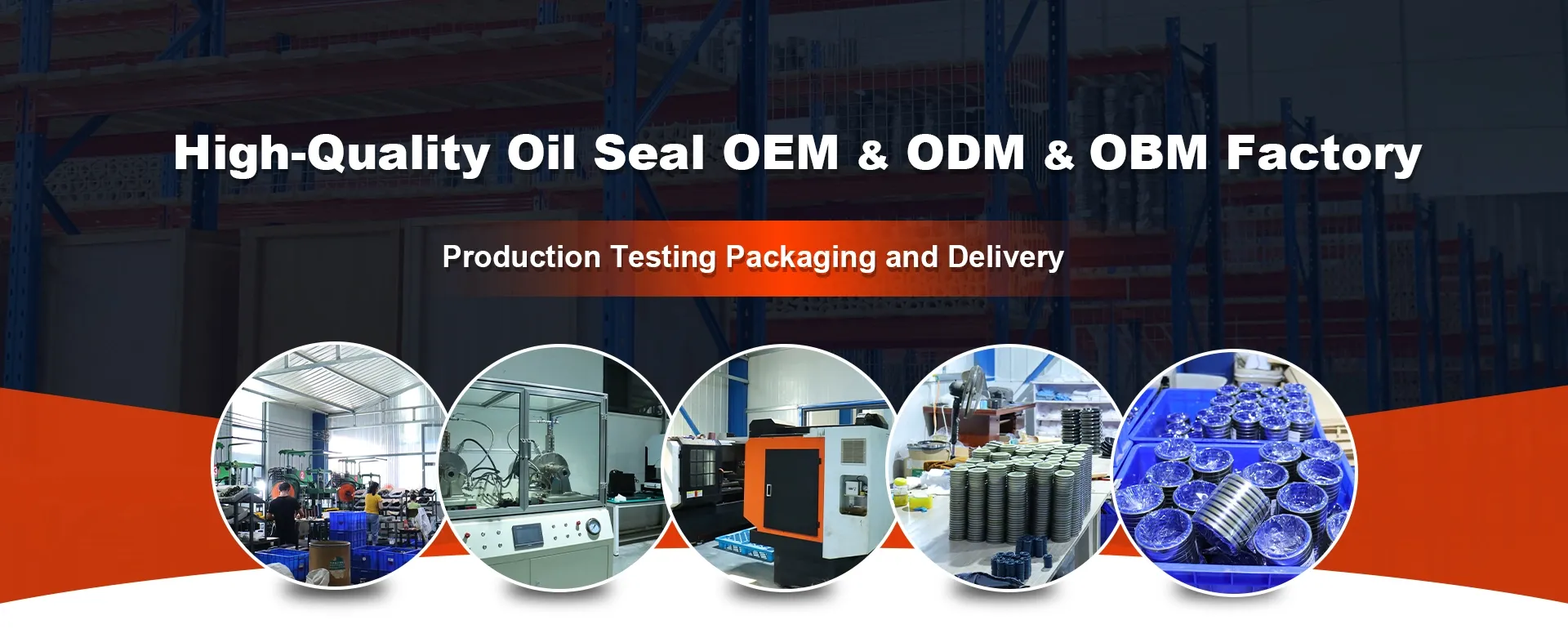Aug . 30, 2024 06:48 Back to list
High-Quality Hydraulic Oil Seals for Reliable Performance
Understanding Hydraulic Oil Seals Importance and Functions
Hydraulic oil seals play a vital role in ensuring the efficiency and longevity of hydraulic systems. These seals are specifically designed to prevent leaks and protect hydraulic fluid from contamination, which is critical for maintaining the performance of machinery in various industries, including construction, manufacturing, and automotive.
At its core, a hydraulic oil seal is a device that creates a barrier between moving and stationary components in hydraulic machinery. These seals can be made from various materials, including rubber, polyurethane, and fluorocarbon, each chosen for their specific properties suited to different operating conditions. For instance, seals made from nitrile rubber are often used for their excellent resistance to petroleum-based oils and high temperatures, making them suitable for many hydraulic applications.
The primary function of hydraulic oil seals is to contain the hydraulic fluid within a system. This containment is essential not only for the efficient operation of hydraulic equipment but also for environmental considerations. Hydraulic fluid leaks can lead to environmental contamination, prompting the need for robust sealing solutions that minimize risks.
hydraulic oil seal

Another significant aspect of hydraulic oil seals is their role in maintaining system pressure. A proper seal allows hydraulic systems to build up and maintain pressure, which is necessary for the efficient operation of hydraulic cylinders and motors. Without effective sealing, pressure loss can lead to decreased efficiency and potential damage to equipment, resulting in costly repairs and downtime.
Moreover, hydraulic oil seals also protect against external contaminants, such as dust, dirt, and moisture. These contaminants can compromise the hydraulic fluid’s integrity, leading to corrosion and wear of internal components. By preventing the ingress of such particles, oil seals help ensure that hydraulic systems operate smoothly and reliably over time.
The selection of an appropriate oil seal is therefore crucial. Factors such as the temperature range, pressure conditions, and the type of hydraulic fluid being used must be considered to ensure optimal performance. Regular inspection and maintenance of hydraulic seals can prevent leaks and prolong the lifespan of hydraulic equipment.
In summary, hydraulic oil seals are essential components that contribute to the efficiency, performance, and reliability of hydraulic systems. Understanding their importance and functions can help industries maintain their equipment and reduce potential costs associated with leaks and system failures.
-
Understanding Oil Seals and Their Role in Machinery Efficiency
NewsApr.08,2025
-
The Importance of Seals in Agricultural and Hydraulic Systems
NewsApr.08,2025
-
Essential Guide to Seal Kits for Efficient Machinery Maintenance
NewsApr.08,2025
-
Choosing the Right TCV Oil Seal for Your Machinery
NewsApr.08,2025
-
Choosing the Right Hydraulic Oil Seals for Reliable Performance
NewsApr.08,2025
-
A Comprehensive Guide to Oil Seals and Their Applications
NewsApr.08,2025
-
The Importance of High-Quality Oil Seals in Industrial Applications
NewsMar.26,2025
Products categories
















